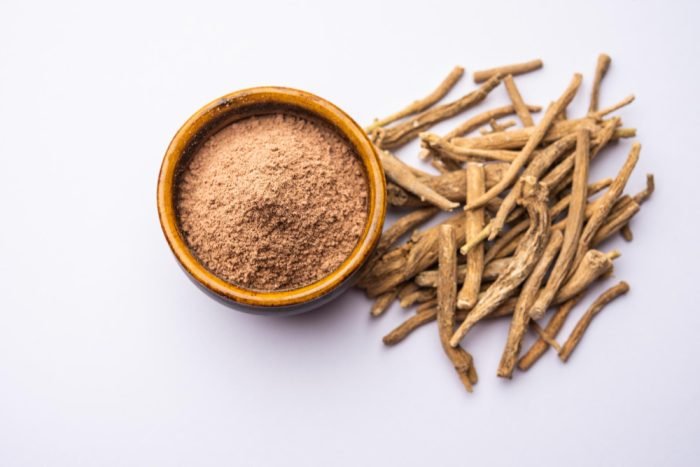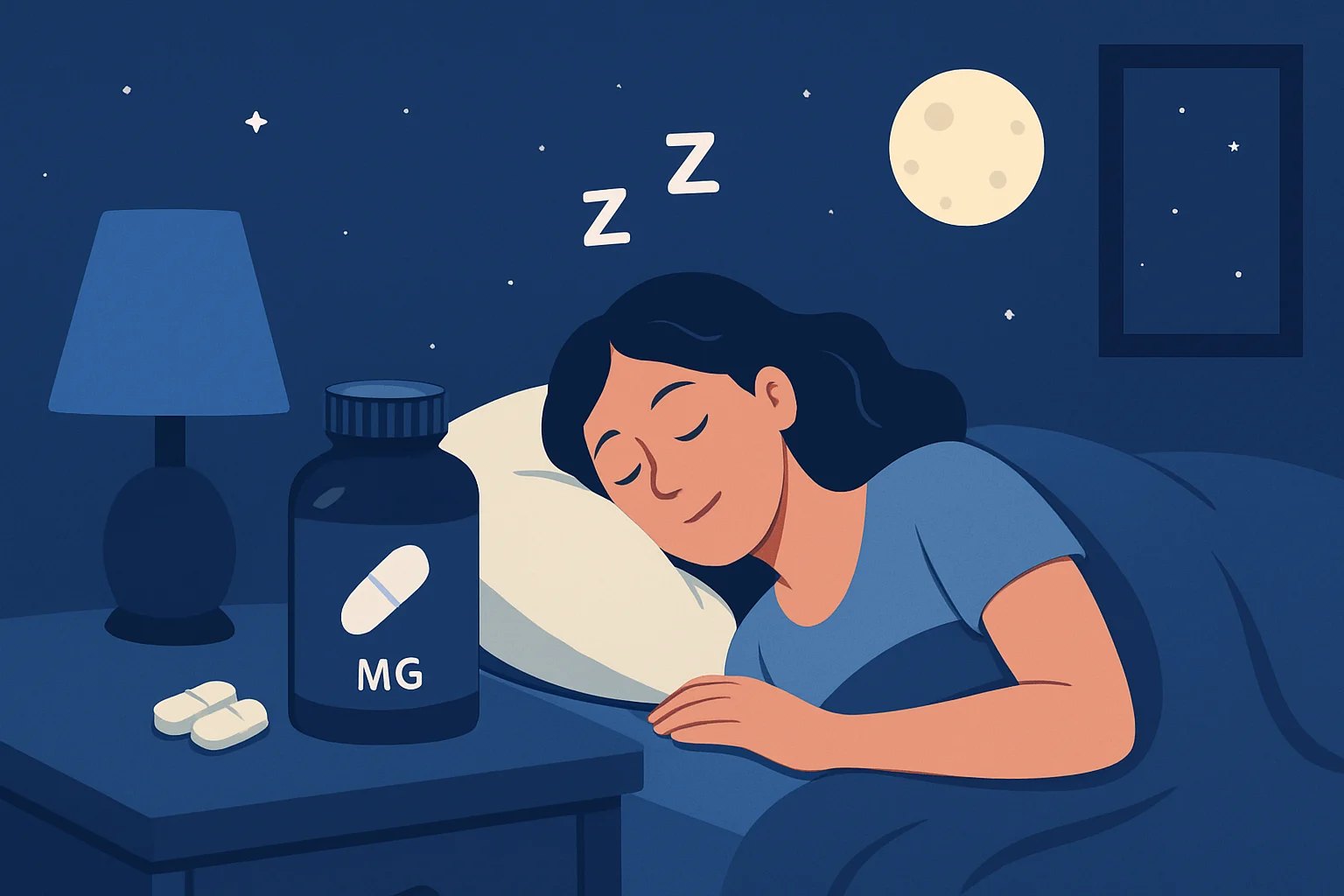
Hydration is a fundamental aspect of health, yet it is often surrounded by misconceptions and conflicting advice. With so many myths about how much water we need, it’s important to separate fact from fiction to ensure we’re drinking the right amount for optimal health. This article will explore common hydration myths, present the facts, and provide practical guidelines for how much water you really need each day.
The Importance of Hydration
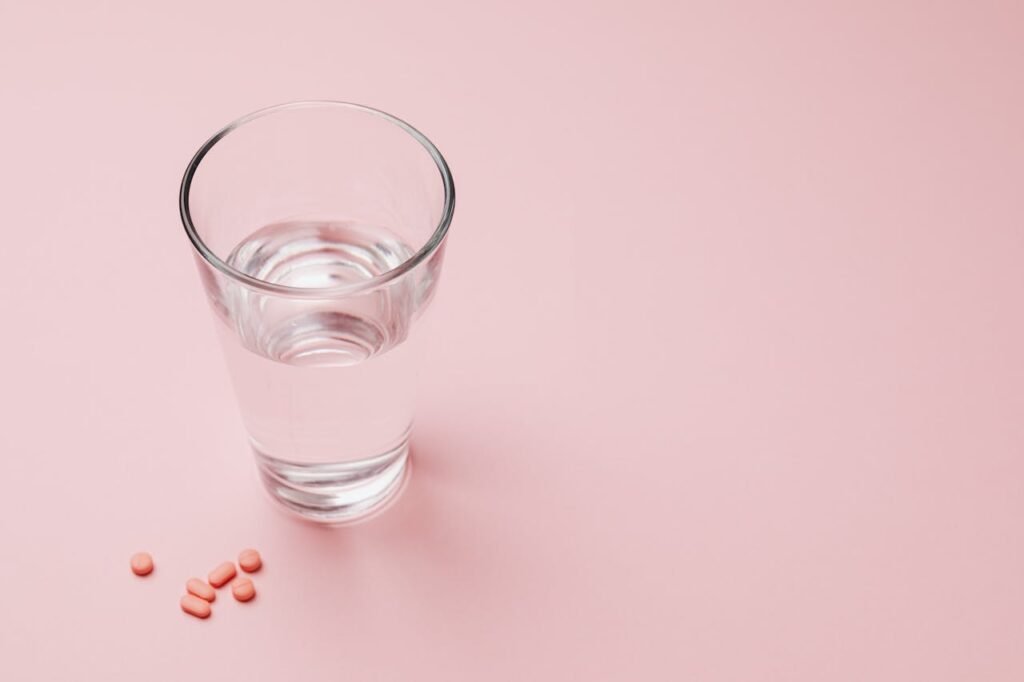
Why Water is Essential for the Body
Water is vital for virtually every bodily function. It plays a key role in:
- Regulating Body Temperature: Through sweating and respiration, water helps maintain a stable internal temperature.
- Supporting Digestion: Water aids in breaking down food and absorbing nutrients.
- Lubricating Joints: Water keeps joints cushioned and functioning smoothly.
- Eliminating Waste: Water is crucial for the kidneys to filter out toxins and waste products through urine.
- Maintaining Skin Health: Adequate hydration helps keep skin hydrated, plump, and youthful-looking.
How Much Water Does the Body Lose Daily?
On average, the human body loses about 2 to 3 liters of water daily through breathing, sweating, urination, and bowel movements. This loss must be replenished to maintain hydration and support bodily functions.
Hydration Myths vs. Facts

Myth 1: You Need to Drink 8 Glasses of Water a Day
Fact: The “8 glasses a day” rule is one of the most common hydration myths. While it’s a simple guideline, it’s not a one-size-fits-all rule. Hydration needs vary depending on factors such as age, weight, activity level, and climate. Some people may need more, while others may need less. The National Academies of Sciences, Engineering, and Medicine recommends a daily water intake of about 3.7 liters (or about 13 cups) for men and 2.7 liters (about 9 cups) for women, including water from all beverages and foods.
Myth 2: Thirst is a Reliable Indicator of Dehydration
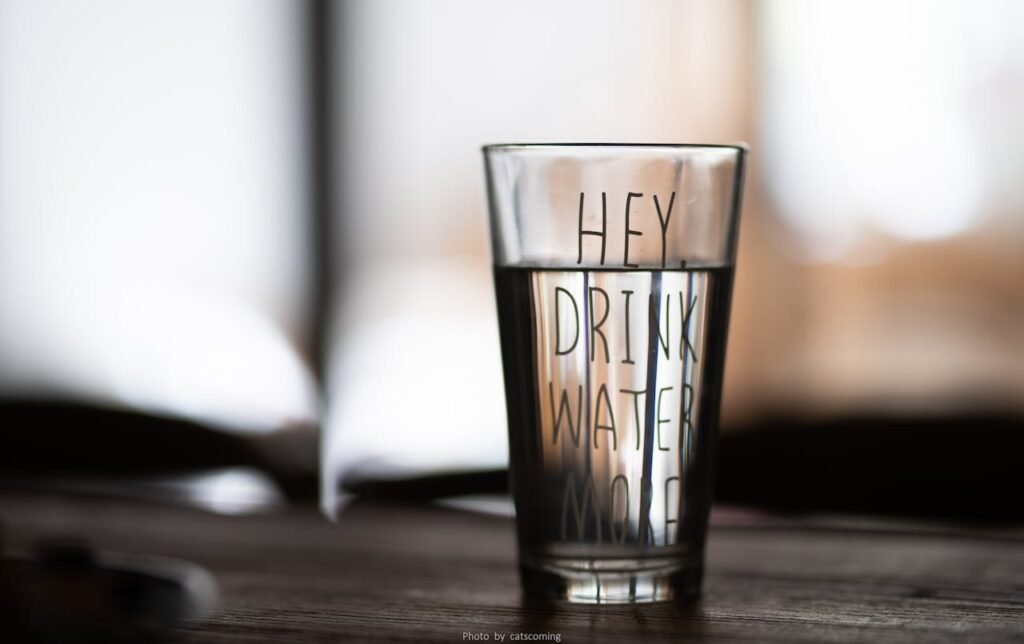
Fact: Thirst is a late indicator of dehydration. By the time you feel thirsty, your body may already be slightly dehydrated. It’s better to drink water consistently throughout the day rather than waiting until you’re thirsty. Relying solely on thirst can also be misleading, as some people may not feel thirsty until they are significantly dehydrated, especially older adults.
Myth 3: Coffee and Tea Dehydrate You
Fact: While caffeine has a mild diuretic effect, meaning it can increase urine production, the water content in coffee and tea still contributes to your daily hydration needs. In moderate amounts, coffee and tea do not cause dehydration. In fact, they can be part of your total daily fluid intake. However, excessive consumption of caffeinated beverages can have a dehydrating effect, so moderation is key.
Myth 4: Drinking Water Before Bed Helps Prevent Heart Attacks
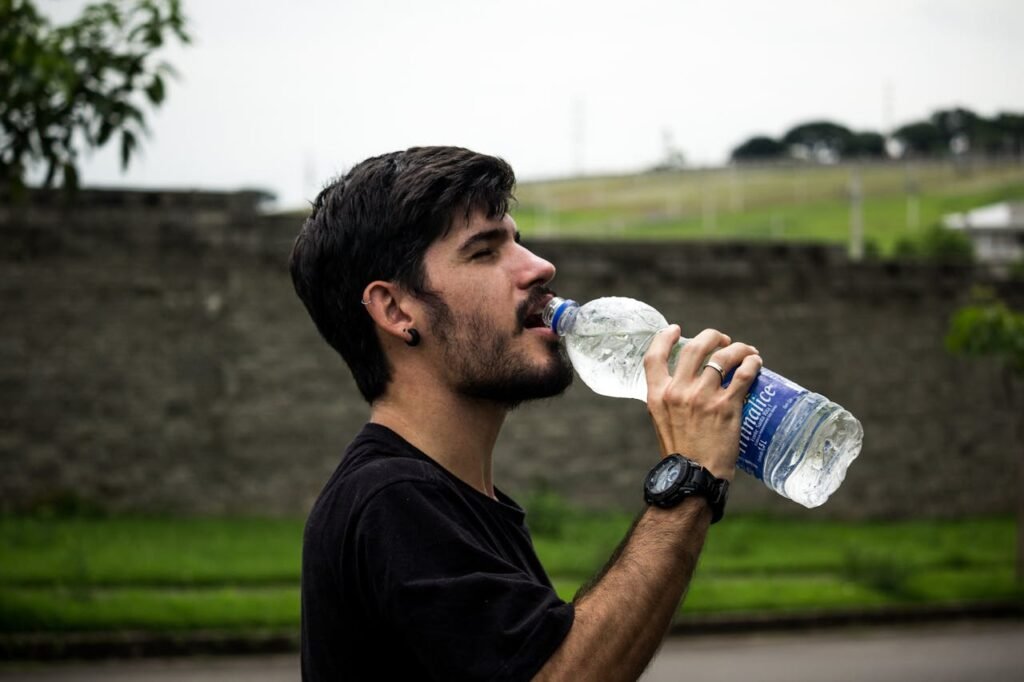
Fact: There is no scientific evidence to support the claim that drinking water before bed can prevent heart attacks. While staying hydrated is important for overall cardiovascular health, the timing of water intake doesn’t significantly impact the risk of heart attacks. However, drinking water throughout the day supports good circulation and helps maintain healthy blood pressure.
Myth 5: Clear Urine is a Sign of Perfect Hydration
Fact: While clear urine can indicate good hydration, it’s not the only sign. Urine color can vary depending on several factors, including diet, supplements, and medications. Pale yellow urine generally indicates adequate hydration, while dark yellow or amber-colored urine can be a sign of dehydration. Completely clear urine may suggest overhydration, which can dilute essential electrolytes in the body.
Myth 6: You Can Only Get Hydrated by Drinking Water
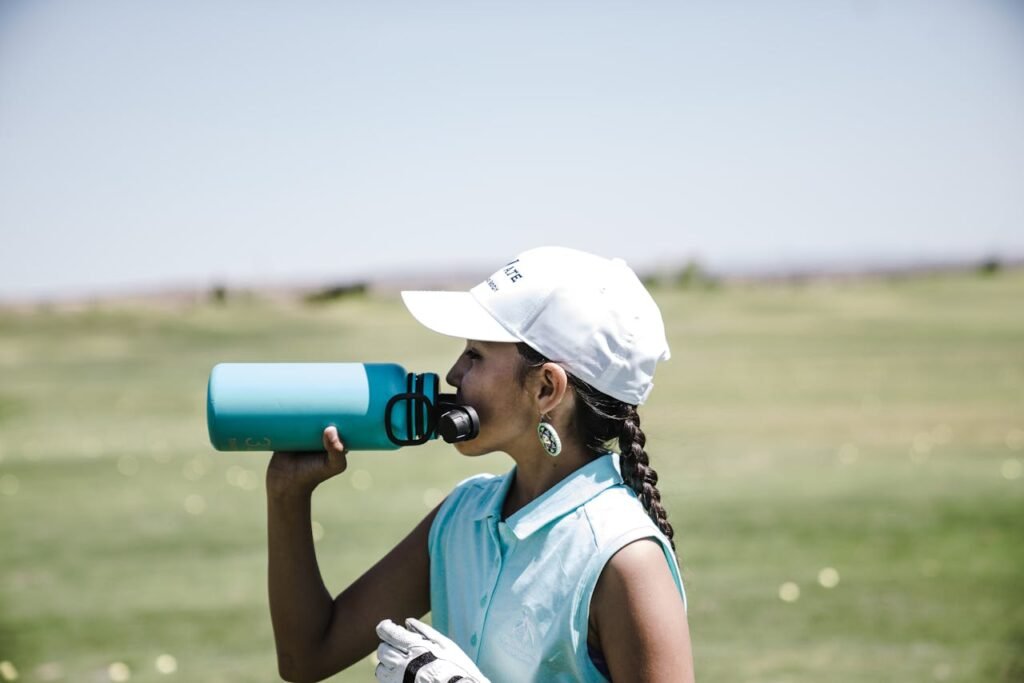
Fact: Water is not the only source of hydration. Foods with high water content, such as fruits and vegetables, contribute to your daily fluid intake. Foods like cucumbers, watermelon, oranges, and soups can significantly boost hydration levels. Other beverages, such as milk, herbal teas, and juices, also count towards your total fluid intake. However, it’s best to limit sugary and high-calorie drinks to avoid unnecessary calories and sugar.
Practical Tips for Staying Hydrated
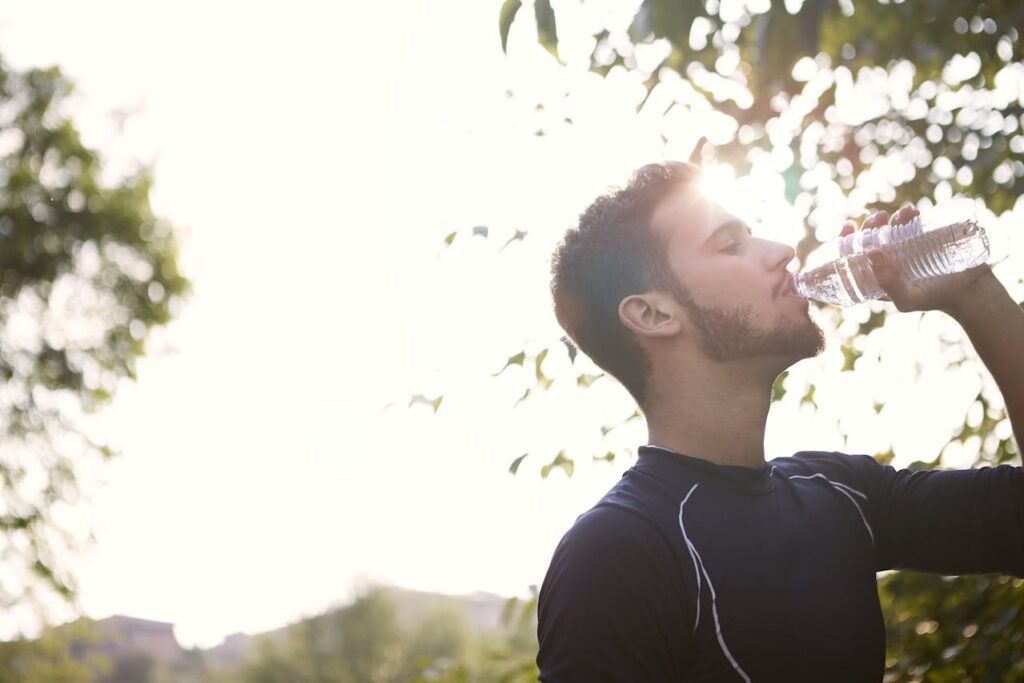
Listen to Your Body
While general guidelines are helpful, listening to your body is essential. Pay attention to signs of dehydration, such as dry mouth, fatigue, dizziness, or dark urine. Adjust your water intake based on your individual needs, activity level, and environmental conditions.
Include Water-Rich Foods in Your Diet
Incorporating water-rich foods into your diet can help you stay hydrated without having to drink large amounts of water. Fresh fruits like watermelon, strawberries, and oranges, along with vegetables like cucumbers, lettuce, and zucchini, are excellent choices. These foods are not only hydrating but also provide essential vitamins, minerals, and fiber.
Set Hydration Goals
If you struggle to drink enough water, setting hydration goals can help. Try to drink a glass of water with each meal, carry a water bottle with you throughout the day, and set reminders to take sips regularly. Apps that track your water intake can also be useful in ensuring you meet your daily hydration needs.
Adjust Water Intake Based on Activity and Environment
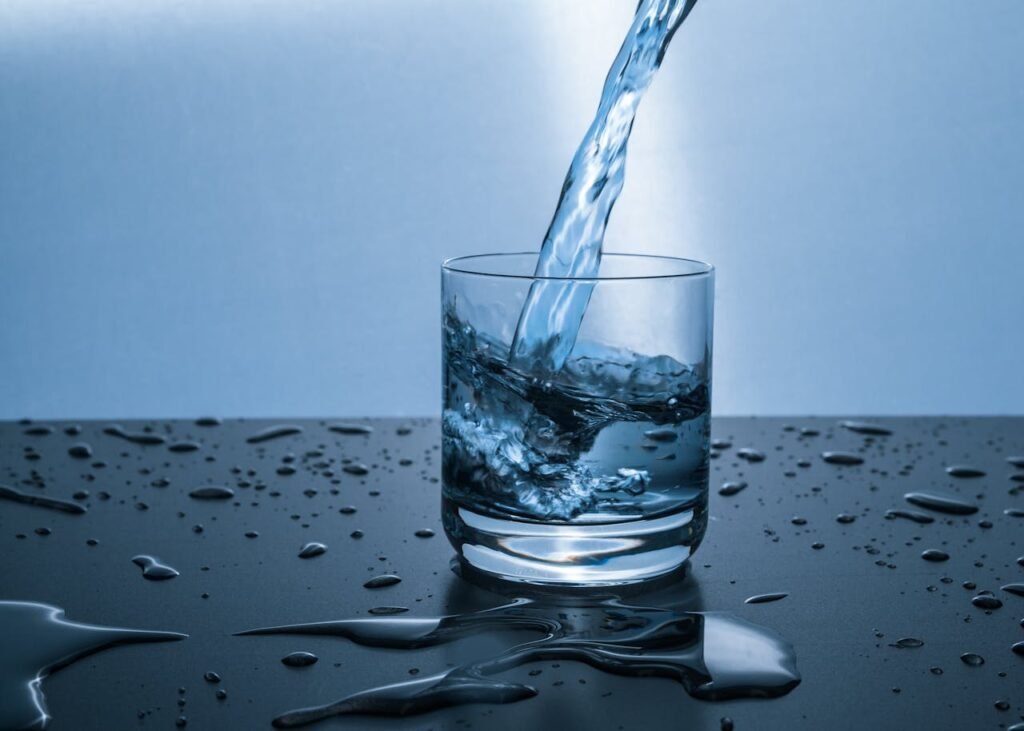
Your water needs increase with physical activity and in hot or humid environments. When you exercise, drink water before, during, and after your workout to replace fluids lost through sweat. In hot climates, increase your water intake to prevent dehydration and heat-related illnesses.
Monitor Your Urine Color
A quick way to assess your hydration status is by checking the color of your urine. Aim for pale yellow urine, which generally indicates proper hydration. If your urine is consistently dark, it’s a sign that you need to increase your water intake.
Be Cautious with Overhydration
While dehydration is a more common concern, overhydration can also be harmful. Drinking excessive amounts of water in a short period can dilute the sodium levels in your blood, leading to a condition called hyponatremia. Symptoms of hyponatremia include headache, nausea, confusion, and in severe cases, seizures. Drink water gradually throughout the day rather than in large quantities at once.
Conclusion: Finding the Right Balance for Hydration
Staying properly hydrated is crucial for overall health and well-being, but it doesn’t have to be complicated. By debunking common myths and understanding the facts, you can tailor your water intake to meet your individual needs. Listen to your body, incorporate water-rich foods into your diet, and monitor your urine color to ensure you’re getting the right amount of hydration. Remember, there’s no universal rule for everyone—hydration needs vary, so finding the right balance is key to maintaining optimal health.







